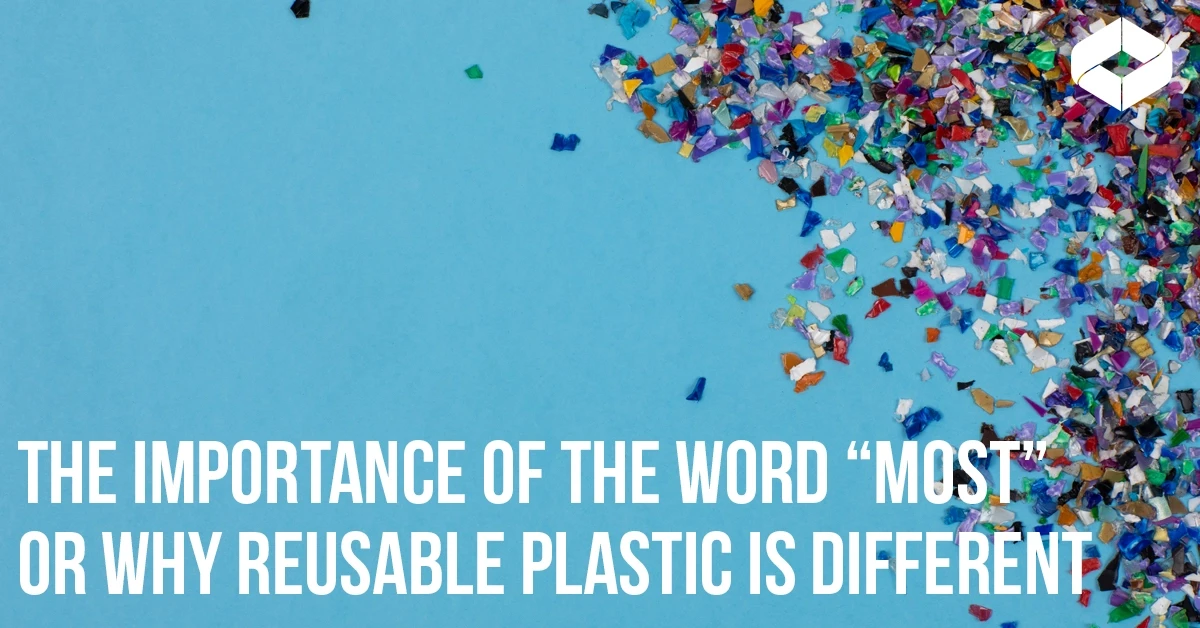The importance of the word “most” – or why reusable plastic is different

Some thoughts by Britta Wyss Bisang, our Global Sustainability Director
It is a shocking conclusion the Greenpeace US report draws: “Plastic recycling is a dead-end street, year after year recycling declines, even as plastic waste increases.” The vital qualifier comes a little bit later: most plastic simply cannot be recycled (“today” shouts the optimist in me).
It is most plastic because already today, the plastic used in returnable and reusable packaging saves resources and avoids waste – it is not part of the problem but the solution. The crates and containers Schoeller Allibert produces, not only last for many years, but they are also fully recyclable. And no, I do not mean recyclable in some abstract, theoretical terms. I mean that, as a fact, we are taking them back at the end of their life, mechanically recycling them into new, lightweight, and reusable crates and containers that can last for another 10 to 15 years.
Therefore, we need to differentiate between two worlds of plastic packaging. On one side, there is reusable plastic packing which helps transition to a circular economy because it provides durable solutions and prevents waste. On the other side, there is single-use plastic packaging. Single-use plastic packaging is hard to recycle due to logistical and quality problems and, as the Greenpeace US report pinpoints, is the reason for the ever-growing plastic waste mountain.
Switching from single-use plastic packaging to reusable packaging is a solution Schoeller Allibert’s clients have been using for decades. However, in general, our world just starts to explore the potential of reusable packaging. For me, it’s clear: the longer we can keep resources in the economy, the more we reuse an item before we recycle it in a fully transparent and responsible way –the bigger steps we take towards a genuinely circular economy!
Want to read more about our sustainability goals? Click here for our sustainability strategy. It sets out our contribution to creating a better future by tackling the most pressing issues facing the environment, society and our business.